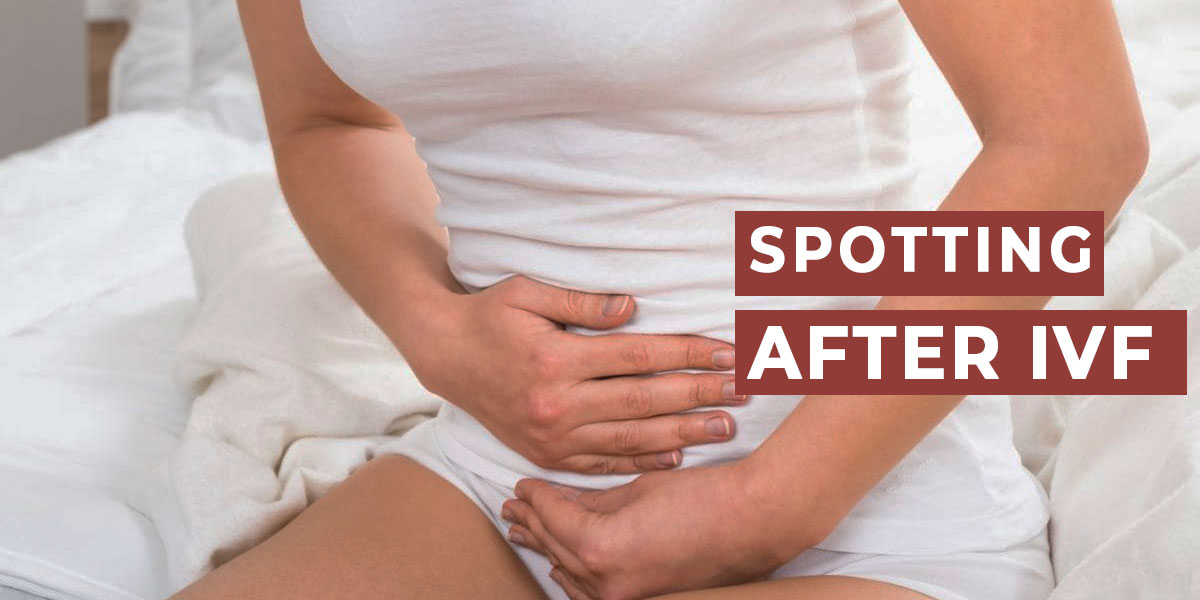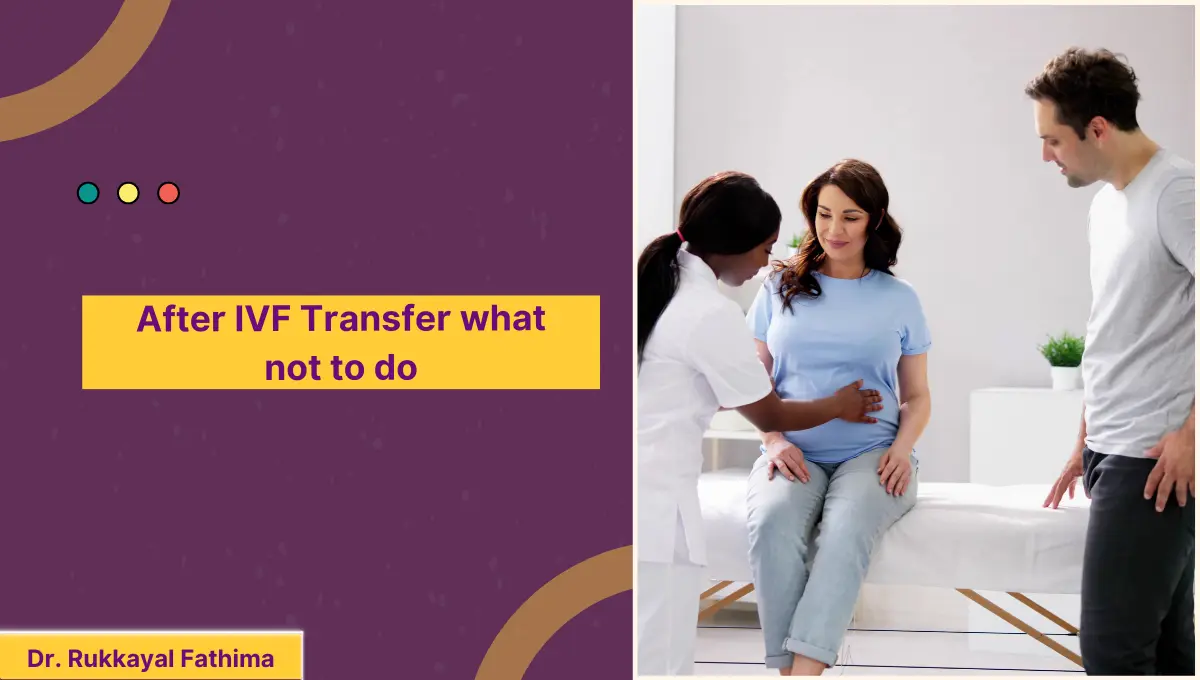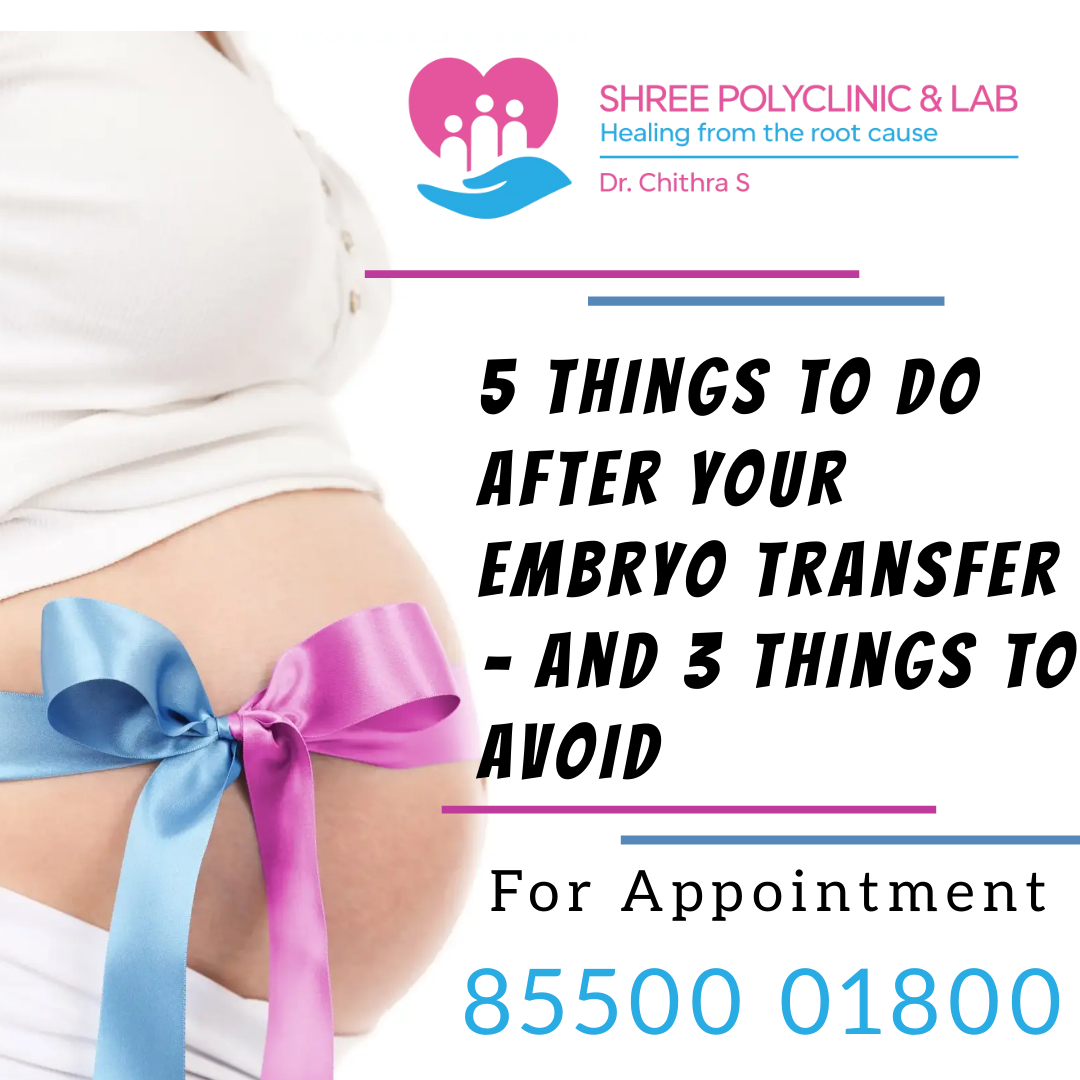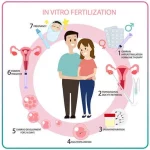What to Do After IVF Transfer: Your Ultimate Guide to Boosting Success
So, you’ve just had your IVF embryo transfer—congratulations on making it this far! This is a huge moment, and now you’re probably wondering what comes next. The two-week wait (or “2WW,” as many call it) between the transfer and your pregnancy test can feel like an eternity. You might be asking yourself: What can I do to help this work? How do I take care of myself? What should I avoid? Don’t worry—you’re not alone, and I’ve got you covered with everything you need to know to navigate this time with confidence.
This guide is packed with practical tips, science-backed advice, and a few fresh perspectives you won’t find everywhere else. Whether it’s your first IVF cycle or you’re a seasoned pro, there’s something here to help you feel empowered and hopeful. Let’s dive into what you can do after your embryo transfer to support your body, mind, and maybe even that little embryo.
Understanding the Post-Transfer Phase: What’s Happening Inside?
After your embryo transfer, the goal is simple but incredible: you want that embryo to implant into your uterine lining and start growing into a healthy pregnancy. This process, called implantation, usually happens 6 to 10 days after the transfer, depending on whether it was a Day 3 or Day 5 embryo (blastocyst). Your body is working hard behind the scenes, and while you can’t control everything, you can create the best possible environment for success.
Implantation is a bit like planting a seed in a garden. The embryo needs a cozy, nutrient-rich spot to settle in, and your uterus is preparing to be that perfect home. Hormones like progesterone are thickening your uterine lining, and tiny blood vessels are getting ready to connect with the embryo. It’s a delicate dance, and your job is to keep the stage set for this miracle to unfold.
Rest, Relax, and Recharge: How Much Activity Is Too Much?
One of the biggest questions people have after an embryo transfer is about rest. Do you need to lie flat for days? Can you go for a walk? Here’s the deal: balance is key.
The Myth of Bed Rest
Years ago, doctors often recommended strict bed rest after an embryo transfer, thinking it would help the embryo “stick.” But research has flipped that idea on its head. A 2013 study in the journal Fertility and Sterility found that women who rested for just 10 minutes after the procedure had the same success rates as those who stayed in bed for 24 hours. Staying still too long might even increase stress or blood clot risks—not what you want right now!
Finding Your Sweet Spot
You don’t need to become a couch potato, but you also shouldn’t run a marathon. Light activity keeps your blood flowing, which is good for your uterus. Here’s a quick guide:
✔️ Do: Take short, gentle walks (think 15-20 minutes around your neighborhood).
✔️ Do: Stretch or do light yoga (skip the twists and inversions).
❌ Don’t: Lift heavy groceries or hit the gym for a sweaty workout.
❌ Don’t: Stress about sitting too much—moving a little is better than nothing.
A Day in the Life: Post-Transfer Activity Example
- Morning: Wake up, have breakfast, and relax with a book or podcast.
- Midday: Take a slow stroll to get some fresh air.
- Afternoon: Nap or watch a feel-good movie.
- Evening: Light stretching before bed to unwind.
Listen to your body—if you feel tired, rest. If you’re antsy, move a little. You’ve got this!
Fueling Your Body: What to Eat After Embryo Transfer
Your diet can play a huge role in supporting implantation and keeping you strong during the wait. Think of food as your secret weapon—simple choices can make a big difference.
The Power of a Balanced Plate
Focus on whole foods that nourish your body and reduce inflammation. A 2021 study from the American Journal of Clinical Nutrition showed that diets rich in fruits, vegetables, and healthy fats (like the Mediterranean diet) are linked to better IVF outcomes. Here’s what to prioritize:
- Protein: Eggs, chicken, fish, beans—think building blocks for your cells.
- Healthy Fats: Avocado, nuts, olive oil—these keep your hormones happy.
- Complex Carbs: Brown rice, quinoa, sweet potatoes for steady energy.
- Fruits and Veggies: Aim for a rainbow—berries, leafy greens, and carrots are packed with antioxidants.
Hydration Station
Water is your best friend right now. It helps blood flow to your uterus and flushes out any toxins from fertility meds. Aim for 8-10 cups a day—add a slice of lemon or cucumber if plain water feels boring.
Foods to Skip
Some things might throw your body off balance:
❌ Caffeine: Limit coffee or tea to one cup a day—too much can mess with blood flow.
❌ Processed Junk: Chips, sugary snacks, and fast food can spike inflammation.
❌ Raw Fish: Skip sushi for now to avoid any bacteria risks.
Sample Meal Plan for a Post-Transfer Day
| Meal | Food Ideas |
|---|---|
| Breakfast | Oatmeal with berries and a spoonful of almond butter |
| Snack | Greek yogurt with a handful of walnuts |
| Lunch | Grilled chicken salad with spinach, avocado, and olive oil dressing |
| Snack | Sliced apple with peanut butter |
| Dinner | Baked salmon, quinoa, and steamed broccoli |

Medications and Supplements: Stick to the Plan
Your doctor probably gave you a list of meds to take after the transfer—progesterone is the star of the show. It thickens your uterine lining and helps the embryo settle in. Missing a dose could throw things off, so set reminders on your phone or use a pill organizer.
Beyond Progesterone
Some clinics suggest extra supplements, like:
- Vitamin D: A 2022 study in Human Reproduction found that women with higher Vitamin D levels had better implantation rates. Check with your doctor about testing your levels.
- Prenatal Vitamins: Folic acid and other nutrients prep your body for pregnancy.
- CoQ10: This antioxidant might boost egg quality and uterine health—ask if it’s right for you.
✔️ Tip: Keep a daily checklist to track your meds and feel in control.
Managing Stress: Keeping Your Mind at Peace
The 2WW can be an emotional rollercoaster—hope one minute, worry the next. Stress won’t ruin your chances, but lowering it can make this time more bearable.
Why Stress Matters
Your body releases cortisol when you’re stressed, and while it doesn’t directly stop implantation, it can make you feel awful. A 2020 study in Psychoneuroendocrinology showed that women who practiced relaxation techniques during IVF felt less anxious and slept better.
Easy Ways to Chill Out
- Breathe Deep: Try 5 minutes of slow, deep breathing—inhale for 4 seconds, hold for 4, exhale for 4.
- Get Creative: Coloring books or knitting can distract your mind.
- Nature Boost: Sit outside or open a window—fresh air works wonders.
Interactive Quiz: What’s Your Stress Buster?
Answer these quick questions to find your perfect calm-down trick:
- Do you enjoy quiet time alone? (Yes/No)
- Are you happiest with music or art? (Yes/No)
- Does moving around help you feel better? (Yes/No)
- Mostly “Yes” to 1: Try meditation or reading.
- Mostly “Yes” to 2: Play soft music or doodle.
- Mostly “Yes” to 3: Take a gentle walk or stretch.

What to Avoid: Protecting Your Body and Embryo
There are a few things that could throw a wrench in your post-transfer plans. Here’s what to steer clear of—and why.
Heat Is Not Your Friend
Hot tubs, saunas, and even super-hot baths can raise your core body temperature, which might interfere with implantation. A 2019 study in Reproductive Biology and Endocrinology warned that high heat early in pregnancy could increase risks. Stick to warm showers instead.
Say No to Strenuous Stuff
Heavy lifting or intense exercise could strain your still-tender ovaries (thanks to all those IVF meds). Keep it light and easy for at least a week.
Skip the Vices
- Alcohol: Even a glass of wine could affect early development—better safe than sorry.
- Smoking: It’s linked to lower IVF success rates, per a 2023 Journal of Assisted Reproduction report.
Symptoms to Watch: What’s Normal, What’s Not?
After the transfer, you might feel all sorts of twinges and changes. Some are good signs, others are just your body adjusting.
Common and Okay
- Light Cramping: Could be implantation or just your uterus saying “hi.”
- Spotting: A little pink or brown discharge might mean the embryo is nestling in.
- Tiredness: Hormones are working overtime—nap when you need to.
When to Call Your Doctor
- Heavy bleeding (like a period)
- Severe pain that doesn’t ease up
- Fever or chills
✔️ Tip: Keep a little journal of what you feel each day—it’ll help you spot patterns and ease your mind.

The Power of Positivity: Mindset Matters
You’ve probably heard that staying positive can’t hurt, and there’s some truth to it. A 2024 study from Fertility Research and Practice found that women who felt hopeful during the 2WW reported lower stress levels, even if the outcome wasn’t what they wanted.
Little Ways to Stay Upbeat
- Gratitude List: Write down 3 things you’re thankful for each day—like a comfy bed or a supportive partner.
- Vision Board: Pin up pics of baby stuff or happy moments to keep your goal in sight.
- Mantra Magic: Repeat something simple like, “I’m doing my best, and that’s enough.”
Sex After Transfer: Yes or No?
This one’s a hot topic! Some doctors say hold off on intercourse until after the pregnancy test, worried that uterine contractions from orgasm could disrupt things. Others say it’s fine if you feel up to it. A 2022 survey of IVF clinics showed a split—about 60% advised against it, 40% said go for it if it’s gentle.
My Take
Unless your doctor says no (like if you’re at risk for ovarian hyperstimulation), light intimacy might even help—oxytocin from closeness can lower stress. Talk to your clinic and your partner to decide what feels right.
Unique Angle #1: The Gut-Embryo Connection
Here’s something you might not have read everywhere: your gut health could play a role in IVF success. Emerging research from 2023 in Nature Reviews Endocrinology suggests that a balanced gut microbiome supports hormone regulation and reduces inflammation—both key for implantation.
How to Nurture Your Gut
- Probiotics: Yogurt, kefir, or a supplement with lactobacillus can boost good bacteria.
- Fiber: Load up on veggies and whole grains to feed those microbes.
- Fermented Foods: A little kimchi or sauerkraut adds variety.
✔️ Try This: Sip a probiotic smoothie (yogurt, banana, and a handful of spinach) each morning.
Unique Angle #2: Sleep—Your Secret Weapon
Sleep isn’t just for feeling rested—it’s a powerhouse for fertility. A 2024 study in Sleep Medicine found that women who got 7-9 hours of quality sleep per night during IVF had a 15% higher chance of implantation than those who skimped. Why? Sleep regulates hormones and repairs your body.
Sleep Hacks
- Dark Room: Use blackout curtains or an eye mask.
- Cool Temp: Keep your bedroom around 65°F (18°C).
- No Screens: Ditch the phone an hour before bed—blue light messes with melatonin.
✔️ Nightly Routine: Warm tea, a quick stretch, then lights out by 10 p.m.

Unique Angle #3: The Partner’s Role—More Than Support
Most articles focus on you, but your partner’s actions matter too. Stress in your household can ripple, and their health impacts the embryo’s DNA (yep, even after transfer!). A 2023 Journal of Reproductive Health study showed that partners who ate well and avoided smoking improved IVF outcomes indirectly.
Partner To-Dos
- Cook Together: Make healthy meals as a team.
- De-Stress: Watch a comedy or take a walk hand-in-hand.
- Stay Healthy: Encourage them to skip junk food and late nights.
✔️ Fun Idea: Plan a “date night in” with a cozy movie and home-cooked dinner.
Interactive Poll: How Are You Spending the 2WW?
Vote below and see what others are up to—it’s anonymous and quick!
- A) Resting and reading
- B) Light walks and Netflix
- C) Cooking and chilling
- D) A mix of everything
(Share your vote in your head—I’ll imagine the results piling up!)
Prepping for the Test: The Final Countdown
As the two-week wait winds down, you might be tempted to grab a home pregnancy test. Hold off if you can—testing too early can pick up leftover fertility meds and give a false positive. Your clinic will likely schedule a blood test around Day 14 post-transfer for the most accurate result.
If It’s Positive
Celebrate (quietly or loudly—your choice)! Then follow up with your doctor for next steps.
If It’s Negative
Take a deep breath—it’s not over. Many people need a few cycles to succeed. Lean on your support system and talk to your clinic about what’s next.
Wrapping Up: You’re Stronger Than You Know
The post-IVF transfer phase is a wild mix of hope, patience, and self-care. You’ve already shown incredible strength to get here, and every little step you take now—eating well, resting, staying calm—is a gift to yourself and that potential baby. This guide isn’t just about rules; it’s about empowering you to feel in control during a time that can feel anything but.
So, cozy up with a cup of tea, take it one day at a time, and know that you’re doing everything you can. Whatever happens, you’re not alone on this journey—and that’s a win in itself.





